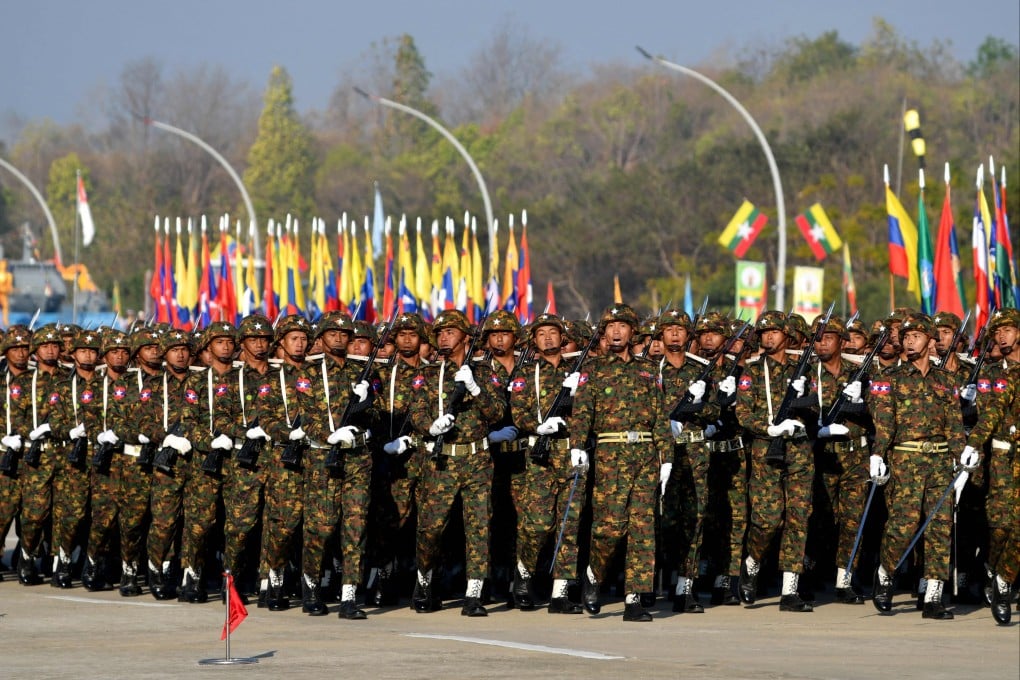Myanmar coup anniversary: ‘Hatred of junta’ mounts as military ruler Min Aung Hlaing plans polls
- Any polls will fall short of democratic standards, and prospects for peace and stability are ‘extremely bleak’ this year, critics say
- Analysts call for global commitment to end junta’s widespread abuses through targeted sanctions and accountability for atrocities

The allegations, which observers say had no basis, justified the coup which has pitched Myanmar into violence as the military contends with a large, increasingly organised rebellion of ordinary citizens and armed ethnic rebel groups.
Thousands of pro-democracy activists have been killed or jailed and civilians have come under frequent artillery and air strikes, while the widespread insurgency has also inflicted heavy losses on the army.
Last week the junta rolled out an election law for political parties to contest a poll it has said will take place in late 2023 despite the violence.
“If an election happens, it will be neither free and fair nor inclusive across the entire country,” said Hunter Marston, a researcher on Southeast Asia at the Australian National University, adding the prospects for peace and stability this year were “extremely bleak”.